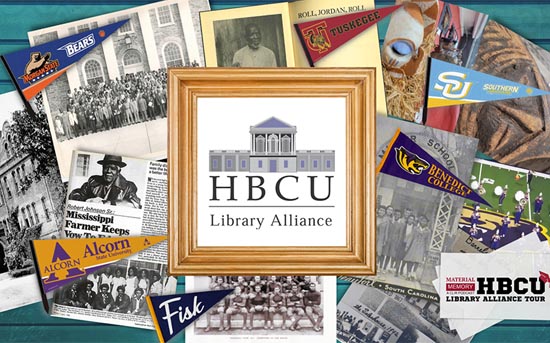The Material Memory podcast spotlights people and collections at six HBCUs.
Historically Black Colleges and Universities (HBCUs) occupy a remarkable space in American education, showcasing both the richness of Black intellectual tradition and the tenacity required to thrive in the face of racial hostility and chronic under-resourcing. In the third season of CLIR’s podcast, Material Memory, host Sharon M. Burney takes us on a tour of six HBCU libraries, highlighting the people and collections, and giving us a glimpse into the vital role these institutions play in their communities.
Hear stories about these cornerstones of culture and historical knowledge from librarians, professors, archivists, and historians. Travel from the inner harbor of Baltimore, Maryland, to the “Queen City” of Charlotte, North Carolina; from the champion trees of Columbia, South Carolina, to the magnolias of Lorman, Mississippi; and from the bayous of New Orleans, Louisiana to the rolling hills of Nashville, Tennessee.
The third season of the podcast considers the impact of HBCU library collections on society both locally and abroad. How do we tell the story of Black history from the archives? What are the roles of cultural heritage institutions in the preservation of Black culture? What are the challenges these institutions face? And where do we go from here?
Segments include Fisk University in Nashville, the Gullah Geechee people of South Carolina, Tuskegee University’s remarkable collections, drummer Kofi Amu Horne, and so many more magical conversations. Listen in at material-memory.clir.org/season-3.
Material Memory explores the effects of our changing environment—from digital technologies to the climate crisis—on our ability to access the record of our shared humanity, and the critical role that libraries, archives, museums, and other public institutions play in keeping cultural memory alive. Visit
Read the full article here



